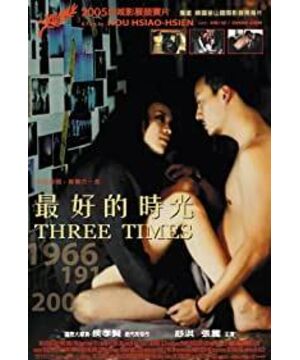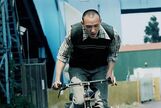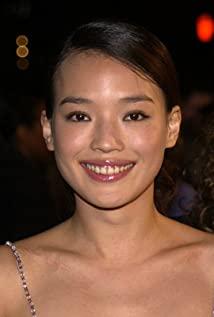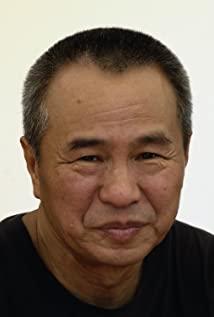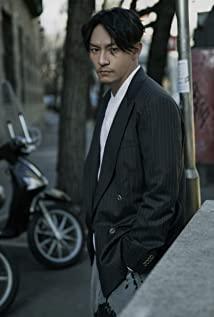Nonsense title, non-existent concerto.
Maybe it would be more appropriate to post this post on "Chinese Movies".
However, at the time of watching, I had the idea of judging a movie with the eyes of appreciating a concerto, and I had already made up my mind to post it here, so even if I felt abrupt, I was willing to write it online here. Below this article.
Hou Hsiao-hsien is getting old, and he can be seen imitating and repeating himself everywhere in the three-part movie "The Best Time". However, the eternal theme of love between men and women in Baodao in different time scenes, and the changes of the times under the calmness of the camera lens, like a violin (female, Shu Qi), cello (male, Zhang Zhen) and their era ( The concerto performed together by the band), the boring and slow process is accompanied by a cordial Taiwanese (Hokkien) narration, it still brings me a knowing touch, although I am a little tired.
The first "Dream of Love", the young love between Brother A Bing and the little girl in the pool hall during the turmoil. The band repeatedly used several fixed tones with slight variations: similar tables in different pool halls, guests and mother-in-law, reciprocating ferries, different place names on the same road signs on the road, where the years pass peacefully , the pure and beautiful idyllic style makes people yearn for it, but it is also simple and boring, like the dining table with the same tableware and similar dishes on the second floor. In this movement, the orchestra is a baroque continuo bass, each part is developed with different materials and makes simple variations; the weight of the two main instruments is roughly equal, and the violin (Shu Qi) is constantly changing due to changing clothes and workplaces (all over the world). The pool hall) is more lively, such as improvisation and play; the cello (Zhang Zhen) turns to the stubborn pursuit of beauty after a brief introduction (Chunzi), similar to the prelude and fugue; the two are similar to the grand concerto. The way of small and medium instrument groups entangled and moved forward, under the stubborn support of the band, the melody was gentle, but the decorative sound was fresh and beautiful, and the last "hand in hand" ended with a traditional folk song theme, the accompaniment of the band was already in The previous "night shift without cars" dissipated.
The second paragraph of "Dream of Freedom" uses light and color like a miniature version of "Flowers on the Sea", and the expression of silent film + text dialogue is a bit hypocritical. As the second theme of majestic and gloomy family and country, the cello and the band played in unison repeatedly, and the section on Maguan Looking Back was particularly shocking; the first theme was a melancholy duet, Zhang Zhen (cello) came again and again, washed, Dressing like a recitative, Shu Qi (violin) meticulously braids for Zhang Zhen is the chorus, and the mournful Nanyin with several prestos is the main song; and the motive of the band "Amei Redemption" is both quoted by the violin and closely related to the solo violin. Formed a very tense competition. This passage is the fastest and most powerful movement in the whole work. It is full of romantic confrontation and conflict. It is a movement as grand and passionate as the first movement of Lao Chai Xiaoxie. The violin is gentle and vigorous, the cello Open and closed, the momentum is extraordinary, and the performance of the band is not in the least. In this section, the plot falls into the track that Hou Hsiao-hsien is best at. He uses local tragedies to never let the Democratic Progressive Party, and the rare thing is his vision and mind.
In the last "Dream of Youth", Hou Hsiao-hsien, who has lost his youth, tried to disguise his youth with an atonal movement full of dissonances, but it failed. The band went on in a chaotic manner: the duet theme of cello and violin being detached; the ambiguous concerto of cello and band Erti (another girlfriend); the dramatic conflict between violin and band Yiti (same-sex girlfriend). Several motives with similar structures but unrelated to each other are unfolded separately, the rhythm is erratic, and the percussion (motorcycle) whizzes sharply from time to time, which enhances the instability of this movement, and the whole piece is also in its weakening. end. Here, Hou Hsiao-hsien didn't have the courage to make a few crescendos (for example, in the beginning, he simply had sex on the floor of the dark aisle, which had a stronger visual impact; gay girlfriend proposed to Shu Qi to share a bath, a passionate scene did not unfold, wasting the subject matter ) and the final climax: the loud noise on the balcony and the words on the computer screen, it is better to fall directly from the building. Perhaps, Hou is controlling the tone and balance of the whole play, but this "balance" just reveals the weakness of youth. Therefore, the "Dream of Youth" can only be an old man's "song of lamentation" watching his youth.
The whole play is as boring as Hou Hsiao-hsien used to. In terms of rhythm, the three-segment style convolutedly puts the 1911 part in the middle of the whole play. "Dream of Love" - 2005 "Dream of Youth") is more logical. Moreover, from the perspective of the concerto, this arrangement is more in line with the "fast-slow-fast" tempo of the three movements. The rush in the great era of "Dream of Freedom" is obviously an allegro; the long love song of "Dream of Love" is a lyrical adagio; the final movement "Dream of Youth" has no prescribed speed, but dissonance, free speed and several short themes The hasty conversion of the inner drive can only make it go forward. With a little tweaking, the whole structure might be more reasonable and convincing.
In this film, I feel that Hou Hsiao-hsien is indeed "Lian Po is old", if there is a moral behind it, it is somewhat empty. Perhaps Hou can't pinpoint anything other than the passing of the years as indicated by the change of scene. The attention to detail (clothing, utensils, etc.) and the deliberateness of the genre (the three-part style is intended to be integrated into a "trilogy"), carefulness and ambition are all out of the anxiety of "time is not with me". Therefore, the bleak color of the old can't hide the restlessness. However, Zhang Zhen's calmness, dullness and Shu Qi's role adaptability are all worthy of recognition.
I watched this movie with the mood of listening to a concerto, and I wrote down some interesting feelings. I believe there are many friends who love watching movies and can share it together.
View more about Three Times reviews


